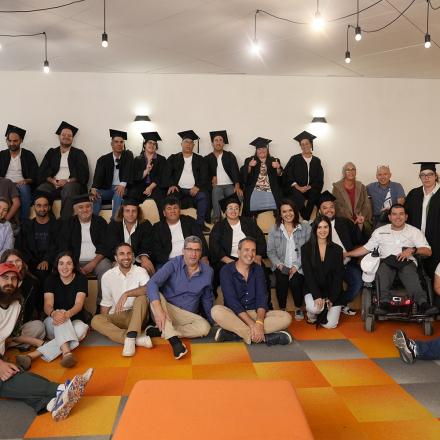Representations of the Holocaust in Graphic Novels
July 2021
Sapir's first student cohort has just completed our online international course Representations of the Holocaust in Graphic Novels. This collaborative course created by Professor Na’ama Sheffi from the College's Communication Department and Professor Katarina Bader from HdM Stuttgart. Participating students from Israel and Germany designed and implemented innovative projects based on a deep exploration of Holocaust graphic novels, these include: A three-part podcast series analysing Anne Frank’s Diary, The Graphic Adaptation (Ari Folman and David Polonsky), Auschwitz (Pascal Croci) and Maus (Art Spiegelman). Two video and texts projects examined The Property with writer and illustrator Rutu Modan and an extensive interview with Michel Kichka on his book Second Generation: The Things I Didn’t Tell My Father. In addition, inspired by Heimat (Nora Krug), students wrote three articles delving into the question of: ‘What is a homeland−in the eyes of present day grandparents−who left their birthplace and immigrated to their nation state?’
This innovative and collaborative course utilized Zoom for: lectures, meetings, project teamwork, guest lectures and the submission students' reports and final projects.
Launching in August 2021, an online exhibition will display the participating students' work. Future plans include Israeli students visiting with their peers in Germany.
Upcoming Online International Sapir Courses
Sapir–HdM Stuttgart course ‘Representation of the Holocaust in Graphic Novels' will open again for registration, as an elective for students of both institutions, in the Spring Semester of 2021-22. In addition, Professor Na’ama Sheffi and Professor Lucyna Aleksandrowicz-Pędich from SWPS Poland will open a joint international online course ‘Memory and Nation Building’. Students of both Sapir and SWPS2 may register for this elective course in the Fall Semester of 2021-22.
More News
Empowering the Future

